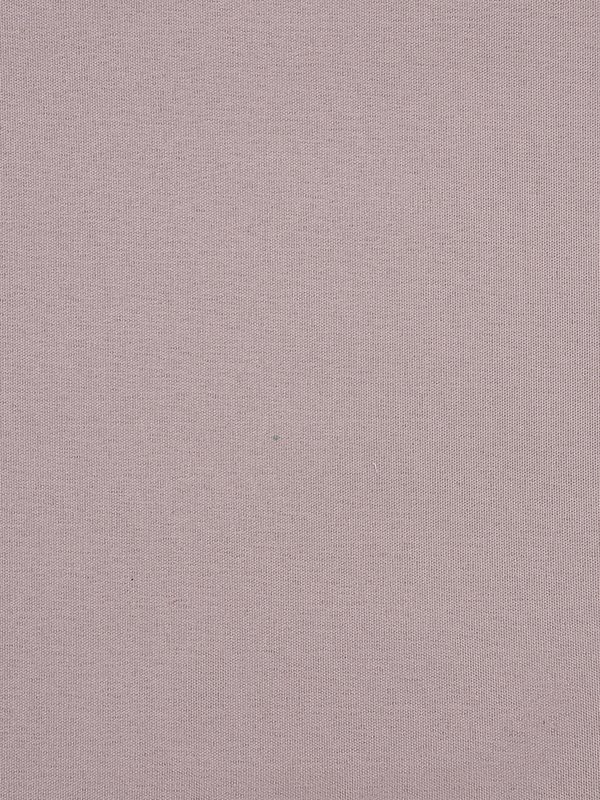Polyester Pongee curtain fabric itself does not have antibacterial and anti-mildew functions, but its antibacterial and anti-mildew ability can be enhanced through post-treatment processes or the addition of special antibacterial and anti-mildew agents.
By adding antibacterial agents to polyester Pongee fabrics, the growth of bacteria, fungi and microorganisms can be effectively inhibited, and the fabric can be prevented from producing odors or stains due to bacterial growth. Common antibacterial agents include silver ion (Ag+) antibacterial agents, copper ion antibacterial agents, nano-antibacterial technology, etc. Silver ion antibacterial agents are particularly popular because silver itself has natural antibacterial effects and can effectively resist most bacteria and fungi.
The function of anti-mildew agents is to prevent the growth of mold, fungi, etc. in humid environments and reduce the generation of mold spots and moldy odors. Common anti-mildew agents include ammonium chloride, anti-mildew powder, and chemical anti-mildew ingredients containing formaldehyde, quaternary ammonium salts, etc. The addition of anti-mildew agents can effectively improve the durability of curtains in humid environments and avoid mold growth caused by humid or warm environments.
By applying antibacterial or anti-mildew coatings on the surface of polyester pengbu curtains, bacteria and mildew can be prevented from adhering to the surface of the fabric to a certain extent. Most of these coatings are colorless and transparent, do not affect the appearance and feel of the fabric, and can gradually release antibacterial and anti-mildew components during use.
Using nanotechnology to form a protective film on the surface of polyester pengbu fabric can provide long-term antibacterial and anti-mildew effects. Nanomaterials such as nanosilver and nanocopper are often used for protective treatment. The tiny particles of these materials have strong antibacterial activity and can effectively prevent the growth of bacteria and mildew.

In order to ensure that the antibacterial and anti-mildew effects can persist during the use of curtains, some "persistent" treatment agents can be used. These treatment agents can be firmly combined with polyester fibers and can still maintain antibacterial and anti-mildew effects after long-term use and multiple washings. For example, anti-mildew agents containing silicone have strong durability and water resistance, and can provide long-term protection.
In order to enhance the anti-mildew effect, waterproof treatment can also be performed, but it should be noted that excessive waterproofing may affect the breathability of polyester pengbu. Balancing water resistance and breathability is key to ensuring that fabrics are both water-resistant and mildew-resistant.
When enhancing the antibacterial and mildew-resistant properties of polyester ponte, it is necessary to ensure that the breathability of the fabric is not affected. Polyester itself has a certain degree of breathability, which is suitable for curtain fabrics. If the antibacterial and mildew-resistant treatment is too heavy or blocks the pores of the fiber, it may cause the curtain fabric to have reduced breathability, which in turn affects indoor air circulation. Therefore, when choosing antibacterial and mildew-resistant agents, you should choose products that can provide effective protection without significantly changing the characteristics of polyester ponte.
Although antibacterial and mildew-resistant treatments can improve the durability of polyester ponte curtains, regular cleaning and maintenance are still important means to prevent the growth of bacteria and mold. Dust, dirt or moisture on the curtain fabric can become a breeding ground for bacteria or mold growth. Regular cleaning, drying and ventilation can effectively prevent these problems from occurring.
If the curtains are in a humid environment (such as a bathroom, kitchen or basement), you can use anti-mildew spray or mildew remover regularly for additional protection.
Modern consumers are increasingly concerned about environmental protection and health, so choosing green and environmentally friendly antibacterial and mildew-proof agents is an important direction to enhance the antibacterial and mildew-proof functions of polyester ponte curtains. These treatment agents usually do not contain harmful substances and do not release toxic gases, which are suitable for families, especially those with children or the elderly.
Choose antibacterial and mildew-proof agents that do not contain irritating chemicals to avoid harmful odors or skin irritation from the treated curtain fabrics. Many environmentally friendly brands have launched harmless antibacterial treatment technologies to ensure that the curtain fabrics are mildew-proof and mildew-proof without posing a threat to health.
Although antibacterial and mildew-proof treatments can effectively extend the service life of curtains, when used in high humidity environments, they still need to be used with air humidity control equipment, such as dehumidifiers or air purifiers, to prevent excessive humidity from causing the growth of mold and bacteria.
If the curtains are often exposed to humid environments (such as bathroom curtains), in addition to choosing antibacterial and mildew-proof fabrics, you can also consider choosing curtains with mildew-proof functions in design, such as curtains with special water-resistant coatings.
A combination of regular cleaning, maintenance and humidity control can improve the durability and comfort of polyester drapes in wet environments, extend their life and keep them looking fresh and hygienic.

 中文简体
中文简体











